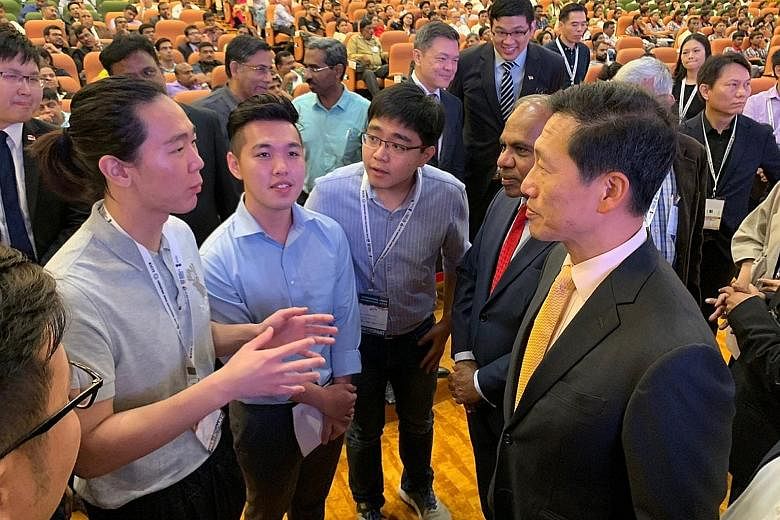Having competed against each other at last year's inaugural Singapore-India Joint Hackathon, yesterday's edition in Chennai saw mixed teams of students from both countries working side by side.
In the future, Education Minister Ong Ye Kung hopes the organisers will also invite students from other Asean universities, as well as those trained in hands-on skills from Singapore's polytechnics and India's technical colleges.
"University is not just about attending lectures and learning knowledge. Through experiences such as these, our students get to do something hands-on, they get to create something - a prototype, an idea," he told an audience of over 900 at the Indian Institute of Technology Madras.
"The hackathon is also a platform for our students to participate in cross-cultural projects," he said.
Indian Prime Minister Narendra Modi, who was present and had mooted the hackathon, said: "It can be safely said we have moved from competition to collaboration. This is the strength that we need, to bear jointly, on the challenges that both our countries face."
He added: "The solutions found in today's hackathons are the start-up ideas for tomorrow."
The first hackathon was held at Nanyang Technological University (NTU) last year. This year's edition, organised by NTU, India's Ministry of Human Resource Development's Innovation Cell, and the All India Council for Technical Education, saw 120 university students from both countries grouped into 20 teams to develop solutions to challenges in education, healthcare, and green energy over 36 hours.
The top prize of $10,000 went to Team 10, comprising Baibhav Kumar, Sweta Kabi and Subham Divakar from India, and Mitchell Tan Ming Kai, Jerald Low and Bryan Lim Yuqiang from Singapore.
Their proposal was to install cost-effective sensors in a potted plant to detect volatile organic compounds in the air.
Upon sensing high levels of impurities, small fans will automatically switch on to circulate clean air from the base of the plant.
Other winning proposals included a solution to prevent accidental usage of used medical syringes, and an artificial intelligence-based system that detects students' emotions in class so educators can identify if they are disinterested or confused, and better tailor their methods.
Said NTU president Subra Suresh: "Singapore and India have many dynamic and talented young people who hold the key to future innovation. This hackathon harnesses their passion and nurtures their creativity."

